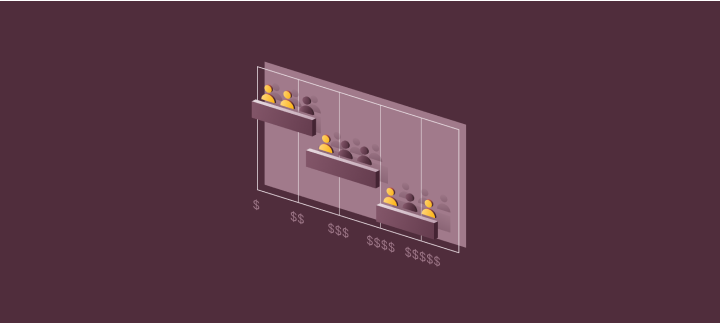20 best reference check questions to ask before hiring
Some might think that reference checks don’t mean much. You’ve already interviewed the candidate. Maybe even tested their job-related skills. So, why call someone just to hear, 'Yeah, they were great'?
The thing is, if you ask the right questions, you can get real answers. Not just polite praise. You can get an insight into how the candidate actually worked, what they’re like under pressure, and how they dealt with setbacks. And that's information you can’t always get from a resume or an interview.
In this article, we explain what a reference check is and give you some of the best reference check questions to ask, broken down by topic and role. After reading this, you'll know exactly what to ask, why to ask, and how to spot red (or green) flags. We also share a few good tips to help you run comprehensive reference checks.
What a reference check is (and why the questions matter)
A reference check is an integral part of the recruitment process. It’s when you speak with someone who’s worked with your candidate before. You would typically conduct a reference check after interviewing the candidate.
The people you contact during a reference check are usually the candidate's former managers or co-workers. Reference checks can help you determine a candidate's true ability to perform on the job, not just how well they can pull off an interview.
It's not a matter of digging for dirt or trying to catch anyone out. The objective of calling references is just to confirm what you already know from the interview. Checking references is a process of filling in the gaps and checking if there are any signs you’ve missed. You’re trying to get a read on things like:
- the candidate's work history
- the candidate's job performance
- the candidate's work ethic
- the candidate's skills
Here's the kicker: the reference check questions you ask matter.
Ask vague questions and you'll probably get pretty vague answers. Ask the right ones, and you’ll get real, useful detail. And that’s worth its weight in gold for any hiring manager.

⚠️ 13 compliance traps every Aussie business must avoid
2025 hiring & payroll playbooks — stay compliant, hire smarter, avoid costly mistakes.
See how your payroll stacks up to 500+ local companies
Learn what top-performing teams are doing differently
Forecast hiring costs with real AU salary benchmarks
Action-ready tips to stay compliant ahead of FY26
Expert analysis of hiring trends
By clicking “Unlock your first report,” you agree to the use of your data in accordance with Rippling's Privacy Notice, including for marketing purposes.
20 important questions to ask during a reference check
The questions you ask when you conduct reference checks should help you make a more informed hiring decision. But that'll only happen if you ask the right questions. Think practical, open-ended prompts that help you get past the generic 'They were great!' and into something more useful.
Here are some of the best employment reference check questions to ask, grouped by category:
Questions about the candidate’s role and responsibilities
These reference check questions can help you confirm the basics, like if the candidate really did what they said they did. Were they hands on? Were they involved in the right kind of work for your role? This is your chance to make sure the job title and job duties match up with reality.
1. What was [Candidate]’s role, and who did they report to?
Asking this can help you confirm the org chart. It can also let you know if the person you’re speaking to actually worked with the candidate closely enough to give you feedback you can rely on.
2. What were their main day-to-day responsibilities?
This is where you can find out what their job actually looked like. Not the polished version, but the real, everyday kind of things. Did they spend most of their time on admin? Were they client-facing? Did they manage people, or just projects? Equipped with this information, it can be easier for you to see if their experience lines up nicely with the role you’re hiring for.
3. How long were they in the role?
Asking this question enables you to double-check their work history. It's a good way of ascertaining if they stuck it out or jumped ship early. If the answer you get suggests they were quick to leave, it’s probably worth asking why.
4. Did their role change or evolve while they were there?
The answer to this question can tell you if they stepped up, took on more, or were trusted with bigger tasks over time. If they grew in the role, that’s usually a good sign. It means they were likely doing something right.
5. What kind of tasks did they handle on their own vs in a team?
By asking this question, you can get a feel for how independently they worked. It can indicate if they leaned more towards solo work or collaboration. It's also telling of whether their manager trusted them enough to give them ownership or if they had to hover to keep things on track.
Questions about performance and strengths
Asking these reference check questions gives you an opportunity to dig into how they actually performed in the role. Not just what they did, but how well they did it. When asking questions like these, be on the lookout for signs of reliability, initiative, and follow-through. Basically, all the stuff that separates a good employee from a great one.
6. How would you rate [Candidate]’s performance in their role?
Don’t settle for 'They did fine.' Ask for a clear, specific answer. Some people like to give a score out of 10. Others might tell you where the person stacked up in comparison to the rest of the team. Either way, the answer to this question should let you know if they were solid, outstanding, or perhaps somewhere in between.
7. What were their key strengths or contributions?
The answer to this question can let you know what they were best at. Maybe they were the go-to person in a project crisis. Or maybe they had a knack for solving tricky problems. Asking this question can help you match their strengths to the needs of the role you're hiring for.
8. Can you recall a specific achievement or standout moment?
Generic praise isn’t useful. Real examples are. Ask the reference to think back to a time the candidate did something that really made a difference. For example, won a client, fixed a mess, or took the lead on an important project. The answer to this question can inform you of how they operate when it matters.
9. How did they respond to feedback or coaching?
Some people hear feedback and roll with it. Others might get upset or defensive. It's helpful to know which camp your candidate falls into. The answer to this question can also give you a glimpse into how they deal with pressure and learn from their mistakes.
10. What kind of work or projects brought out their best?
Asking this question enables you to find out what kind of tasks made them light up. Some people thrive on structure. Others need room to experiment. The answer here can help you know how to get the best out of them in your own environment.
Questions about areas for improvement
It’s easy to talk about what someone’s good at. It can be harder to get honest answers about their weak spots. But if you don’t ask, you’re only seeing half the picture.
Asking reference check questions about areas for improvement can help you understand the candidate’s ability to grow and handle bumps in the road. The answers to these questions can also help you spot any patterns from their previous employment that could crop up again.
11. What were some areas where [Candidate] needed support or improvement?
Asking this question isn't digging for negatives. It's more about trying to get a feel for where they needed help. Maybe they needed a push to meet deadlines. Or perhaps they struggled with time management. The answer to this question can show you what kind of coaching or structure they might need in your role.
12. Did you ever notice any consistent feedback they received, or anything they struggled with more than once?
You’re looking for patterns here. If they were late a few times, that’s not really too big a deal. But if every project ran behind, that’s probably worth knowing. Asking this question can help you spot habits or behaviours that came up more than once (and might come up again).
13. Were there any situations where their performance slipped or didn’t meet expectations?
No one is perfect. The real insight here is how they responded when things didn’t go according to plan. Did they take ownership of it and improve? Or did the same issue come up again later? Asking this question can help you understand how they deal with pressure and setbacks.
14. If they had stayed longer, what would you have wanted them to work on?
Consider this question as a low-pressure way to ask about weaknesses. Most people won’t want to criticise a former team member directly. But they may be open to sharing what still needed work if you frame it like this. Asking this question can be a way to obtain honest feedback and a sense of the candidate's development path.
15. Did anything ever get in the way of them doing their best work?
Maybe it was a lack of confidence, poor time management, or trouble working with a specific team. This question helps you uncover anything that got in the way. And, more importantly, if it was a one-off situation or something more ongoing.
Questions about working style and team fit
You can hire someone with the perfect skill set and still end up with the wrong fit. That’s why it helps to ask how they worked with others and how they fit into the team. These questions give you a feel for what it’s like to work with this person.
16. How did [Candidate] fit in with the rest of the team?
Asking this question can help you understand if they got along with others and added to a healthy team culture. Did they pitch in when things got busy? Did people enjoy working with them? Or were there tensions? The answer can tell you if they’re likely to thrive in your workplace environment or clash with the way your team does things.
17. What was their general working style like?
Some people need a lot of structure. Others prefer to work things out on their own. Ask how they managed their time, stayed organised, and kept on top of tasks. The answers can help you gauge if their style will gel well with your team and systems.
18. How did they communicate with others?
It's important that you gain insight into your candidate's communication skills. Strong communication skills matter. This is especially true when things get stressful. The answer to this question can let you know how clearly they explained things and how they dealt with disagreements. It can also inform you whether they listened to other points of view.
19. Were they more comfortable working independently or in a group setting?
Some roles need people who can really take initiative and run with things. Others need strong collaborators. The answer to this question can tell you what kind of environment brings out their best and what might slow them down.
20. How did they handle change?
Change is constant. So, it's important to know how they responded. Did they adapt quickly? Push back? Freak out? The answer to this question can give you a sense of the candidate's resilience, attitude, and their ability to roll with things.
Customising reference check questions based on the role
Not every role needs the same kind of questions. For example, a customer service rep and a software engineer won’t need the same skills, personality, or working style. So, it makes sense to rejig your reference check questions based on what the job involves.
Consider what success looks like in the role you’re hiring for. Then ask questions that help you confirm whether your candidate has shown those traits in their previous employment. Below are some role-specific prompts to help you:
Leadership roles
Leadership roles typically involve more than task delivery. Ideally, you want someone who can manage people, delegate well, and think long term. You might ask about how they handled team dynamics, difficult conversations, and decision-making under pressure.
Good questions can include:
- How did they support and develop the people around them?
- What was their approach to delegation? Did they trust their team or try to control everything themselves?
- Can you give an example of a time they had to make a tough call that affected the wider team?
These questions can help you figure out if they’re a strong leader, or just someone who happened to have 'manager' in their job title.
Customer-facing roles
Hiring for a role that involves customers, clients, or the public? Then communication, professionalism, and conflict resolution matter a lot. You need someone who can stay calm under pressure and represent your business well. It's also helpful if they can manage sticky situations without making things worse.
Try asking:
- How did they handle upset or difficult customers?
- Did they keep a professional tone in challenging conversations?
- Can you tell me about a time they had to resolve a customer complaint or de-escalate a situation?
These questions can help you gauge how the candidate treats people, how they manage stress, and if they can build trust quickly.
Remote roles
If the role is remote, self-discipline is non-negotiable. Without an office structure, remote workers need to manage their own time, stay on task, and communicate clearly without being constantly reminded.
Helpful questions to ask could be:
- How did they manage their workload day to day without direct supervision?
- Were they easy to get hold of and quick to get back to you when needed?
- Did they meet deadlines and stay engaged, or did you need to chase them?
The answers to this question can show you if they’re properly suited to remote work or if they're just a fan of the idea of working from home.
Technical/creative roles
Technical and creative roles are pretty much never one-size-fits-all. Some people are great at hands-on detail. Others are better at the big picture stuff. Essentially, you want someone who can solve problems without getting totally stuck. It's also important that they can work with others when needed, and deliver work that holds up.
You could ask things like:
- How did they tackle complicated tasks or unexpected issues?
- Did their work meet the brief, or did you need to go back and forth?
- How did they work with others? Were they easy to collaborate with, or hard to pin down?
These questions can help you figure out if they just ticked boxes. Or if they actually got things done to a high standard and worked well with others.
Reference check tips for better results
Even with a lineup of good reference check questions, the way you conduct reference checks can make or break the outcome. A rushed call or poorly framed question can leave you with surface-level feedback. On the other hand, a focused, relaxed chat can give you real insight into the person you’re about to hire.
Here are some tips that can help any hiring manager run a better, more useful reference check:
- Always get the candidate’s permission first: You need to respect the candidate’s privacy. It’s the right thing to do both legally and ethically.
- Be clear about what you want to learn from the reference check: Look at the role and pinpoint the areas you want to double-check. For example, communication skills, problem-solving abilities, or their actual job duties.
- Ask open questions, not yes-or-no ones: This helps people open up and talk more naturally.
- Listen for tone, hesitation, and what’s not being said: Sometimes the way someone answers tells you just as much as what they say.
- Take detailed notes: You don’t need a transcript. But you should write down the key points. That way, you’ll remember the details later in the hiring process.
- Cross-check any major claims from the interview: If something seemed too good to be true, during the reference check is the time to get a second opinion.
- Ask follow-up questions: If something sounds vague, don't be afraid to dig a little deeper. Ask for examples.
- Don’t skip the soft skills: Ask about attitude, reliability, and especially the candidate's communication skills. These things matter just as much as technical ability.
- Stick to the role: Tailor your questions to the actual responsibilities in the role. The goal is to confirm fit, not burrow into irrelevant history.
- Stay professional and neutral: You’re not looking for a gossip session. You’re running a structured, respectful reference checking process that helps you make an informed hiring decision.
Hire on all cylinders with Rippling
Running an effective hiring process takes more than just good instincts. You need the right tools. That includes everything from posting the job, collecting applications, and booking interviews, to managing the reference check process and making a final decision. Enter Rippling.
With Rippling's recruitment software, everything sits in one place. You can build and publish job posts, track applicants, schedule interviews, assign reference checks, and move candidates through every stage of the process. And you can do it all from a single dashboard.
As a hiring manager, there's no need for you to be chasing documents or jumping between an array of tools. Rippling lets you assign tasks, keep tabs on progress, and take detailed notes at every stage of the process.
And because Recruiting is part of Rippling’s all-in-one workforce management platform, the moment you decide to hire someone, you can kick off onboarding, payroll, IT provisioning, and more, without missing a beat. Every step flows into the next, helping you make faster, smarter, more informed hiring decisions.
Reference check FAQs
How is a reference check done?
The reference checking process usually comes after the interview process. At this stage, you're likely to have narrowed things down to one or two top candidates. As a hiring manager, your job is to speak with people who worked closely with the candidate.
You’ll be calling references and asking them targeted reference check questions based on the role. During the call, it’s a good idea to take detailed notes, especially on tone, hesitations, and any red or green flags. This isn’t a box-ticking exercise. You’re trying to gather insight that helps you decide if this person will make a great new employee.
How many references should I speak to?
Aim for at least two, ideally three. Speaking with more than one person can give you a more complete picture of the candidate's ability and their employment history. You’ll start to see patterns, either positive or not, that can guide you toward an informed hiring decision.
One reference might give you a glowing review. But two or three solid references can give you the confidence to move forward with no reference check reservations.
Can I contact a reference not listed by the candidate?
You can, but be careful. In most cases, you should stick to the people your candidate has listed. That said, if something doesn’t add up or you’ve got a legitimate reason, you can widen the net. Just make sure you’re still acting fairly and professionally.
If you’re going to check references outside their list, it’s best to let the candidate know. That way, your reference check process remains transparent and respectful.
How long does a reference check usually take?
Most hiring managers spend around 10 to 20 minutes per reference. Some calls will run longer if the person has lots to say. Others might be quicker if you keep your reference questions sharp and focused.
Checking references for multiple candidates? Block out enough time to have meaningful conversations. Don’t rush it. The reference check process is your opportunity to get the details that don’t show up on a CV.
Is it okay to ask reference check questions over email instead of a call?
You can, but a phone call is almost always better. Email can be quicker, sure. But it’s less personal and easier to ignore. You also miss out on the stuff between the lines. For example, tone of voice, pauses, and side comments. And these little things can often give you more valuable insight than the answers themselves.
If you’re a busy hiring manager or checking references in another time zone, email might be your only option. But when possible, pick up the phone. You’ll get a much clearer read on how the person really feels about the candidate.
Disclaimer: Rippling and its affiliates do not provide tax, accounting, or legal advice. This material has been prepared for informational purposes only, and is not intended to provide or be relied on for tax, accounting, or legal advice. You should consult your own tax, accounting, and legal advisors before engaging in any related activities or transactions.












